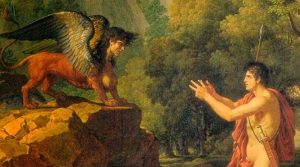“This is a myth”, “that is a myth”, “26 myths about so and so” – these language clichés are often added to our language as a matter of course. We usually use myth as a synonym for stereotype or misconception. These meanings are not wrong if we give them this meaning, because misconception is indeed one of the meanings of myth. But where does the myth come from? What is a myth anyway? In this article, we will talk about the “big” myth of motherhood and the “small” myths as different ideas about how things should be in our lives.
Everyday “little” myths that mothers face
When mothers are asked on the online platforms what myths they have encountered about children, pregnancy, childbirth or motherhood, the answers are as varied as their experiences. In general, there are two types of myth (and their explanation):
- “Everyone told me it would be bad, but it’s not.” The baby won’t sleep, it will be hard, there won’t be time or energy, you will have to say goodbye to your old life – but these mothers, who have heard all this and taken it as something universally true, are usually surprised that it wasn’t true for them, that it turned out to be a myth.
- “Everyone told me it would be fine, but it’s not.” A mother will find some resources within herself to survive difficulties, and in general such difficulties are nothing compared to the great and divine love and meaning of life that a child brings. Disappointed mothers who don’t get it so easily, because everyone promised that the child would solve their personal problems and everything would be relative. As a result, physical exhaustion and emotional overload cannot compensate for this myth that motherhood will bring absolute happiness.
That is, mothers tend to see unfulfilled expectations and promises as a myth, because their reality is different from the collective myth. For now, it follows that there are personal, individual and collective mythologies. We tend to take as myth that which is not in our experience, thus separating our personal experience from that of the collective, although that is how our personal mythologies are formed, but more on that in a moment.
The collective myth, as young mothers see it when confronted with others’ and their own ideas about pregnancy, goes something like this:
- It will be very hard to be a mother, with many sacrifices, but it will be mighty beautiful, where the gains will outweigh the losses
- Motherhood is an adventure and a guarantee of personal growth – every mother goes through some personal changes, and having a child only benefits those changes
- Consequently, motherhood is seen as a kind of initiation – the old life will end, a new one will begin, and you will never be the same again
- If you follow certain rules and follow some kind of guidelines, everything will be fine – depending on your personal values and understanding of what is right and good
- Every mother is like an allmother, who will know and feel from nowhere how it will be better, and at the same time follow a traditional example by following certain rituals of pregnancy and childcare
Do any of these ideas that make up the great myth of the mother seem familiar to you?
What unites all the myths is, to quote one Twitter user, Ilva, “That there are some right ‘methods’ that will make a child eat well, sleep well and not cry”, namely following a certain tradition, the woman herself continues in the same tweet, “in reality, every child needs something different”.
The place of myth in human life today
Myth is not something bad or outdated, it is the way in which man, since prehistoric times, has built and maintained his world together with others so that it continues to function in its current form. Very briefly, the myth is the story. RobertA. Segal defines myth as a story, but it can just as easily be seen as a belief or conviction.
Of course, nowadays we don’t believe in gods who go about their godly business in the pantheon and play with people’s lives, or that thunder is caused by the wrath of the gods. Yet the structures of this way of thinking live on in our consciousness, both collective and individual. In the layers of everyone’s psyche, there is an unconscious mythical thinking, based on fear of the incomprehensible, the unknown. This is not obscurantist, because it is also the basis of a scientific myth, but more on that later.
Mythical structures of thought are necessary so that we do not have to reinvent the way things make sense, but fit into an existing order. There is no need to dispel myths. But they need to be deconstructed – examined and evaluated personally and collectively, because today we can choose for ourselves which values are important to us and which are not. Let us try to do this in the context of motherhood.
The philosopher RolandBarthes, speaking about myth, distinguishes the following characteristics of myth.
- Myth gives the appearance of naturalness to historical reality.
In motherhood, we are mostly confronted with the cult of naturalness and the reproduction of many clichés, where, regardless of the needs of the mother and child, it is necessary to follow a certain set of traditions based on the “it’s natural” view. From conception and the many prejudices against artificial insemination, to pregnancy and childbirth, mothers are expected to have some natural maternal instinct to follow and to always choose the natural and the traditional. But when you look at the examples mothers give for the myth of motherhood, a lot of it is actually really relative. A mother who does not breastfeed her child, or who has given birth to her child by epidural analgesia or caesarean section, is still the natural mother of her child, regardless of any talk about what is or is not natural. This essence of her cannot be taken away, nor can it be made less essential or real. - Myth does not deny things and phenomena; on the contrary, the function of myth is to speak about them. But myth purifies them, renders them harmless, grounds them in eternal and unchanging nature, makes things clear, not by explaining them, but by stating them as fact.
One of the most important elements of modern mythology is the juxtaposition of science versus superstition. But science is not always the opposite of myth. Myth and science are neither equivalent nor opposite, they coexist.
Critical thinking is an important factor and a virtue for modern people, and of course it plays a very important role in healthcare, medicine and other science-based areas of life. But in a sense it replaces mythical thinking – making us re-evaluate and re-examine things, thus performing the daily ritual of research within the great myth of scientism. Because we believe in science, we believe in its goodness.
However, it is a very heavy burden for a person whose daily responsibilities exceed any human capacity. That is to say, the young mother or parent who tries to do what is right, what is best, because who does not want the best for their child, forgetting that science is also constantly changing and rediscovering itself. This is why we, critically thinking mothers are uncritical of our abilities and resources, trying to be mothers with degrees in childcare – to do everything according to the right guidelines and the latest research, thus continuing to fit into the great myth of the mother who knows better and does what is right for her child. Listen to yourself a little, and let yourself just be sometimes.
- Myth abolishes the complexity of human action, attributes simplicity to its essence and, by deducing everything from what is directly visible, displaces any dialectic. “The rest will wait, the most important thing is a calm mother and a healthy baby”. “Your child is the most important thing, your wishes and interests will wait”. “Follow such and such guidelines for raising children, and put your ego aside.” Before a child is born, we think that the changes the child brings to life will be easy to implement. The myth of the mother as the sacrificial lamb makes us repeat all these well-meaning lessons on how to accept our new life, but it is not always as easy as it sounds. And it’s not always necessary for the new mother or her baby.
The Great Mother as an archetype – esoteric nonsense or the essence of every mother?
Ingus Barovskis , a researcher of modern mythologies, describes the archetype The Great Primordial Mother – an image that lives in all of us. The Great Mother is the concept of an all-encompassing divine feminine power whose functions are to give life, take life and give life away. We try to see it in women politicians and leaders, and we try to give meaning to motherhood at different levels of thinking, attributing different attributes of motherhood to every mother. Mother nurturer, mother hearth keeper, mother sufferer, mother heroine. These are all myths of motherhood that have been perpetuated in different times and societies, which in a way also serve as attributes that bring closer the understanding of every mother as an emanation of the Great Mother. Many ideologies and modern mythologies have tried to make the Primordial Mother in their own image and likeness, or in the values that a particular society needs to sustain that ideology.
But the Greatness is not made up of attributes alone. The Great Mother is in all of us, and this is not esoteric. We are each and every one of us a Great First Mother to ourselves and to our children, and to those around us, whether we follow the principles of ecological child-rearing or French-style child-rearing, and whatever anyone thinks of our motherhood. The Primordial Mother is the archetype of the psyche that lives in every consciousness. And that’s it. There is no other ritual than to bring a child into the world (or otherwise welcome it into one’s family) and raise it to sustain the Great Primacy within oneself and society – because we humans cannot do without this myth, but this myth can do without us. We don’t have to prove to anyone that she is, or that we are, the Great Mother. She just is. Life-giving, life-taking, life-renewing.
References:
- One of the discussions can be found here: https://twitter.com/maminkonts/status/1490692995812888578
- https://twitter.com/Zvlkx/status/1490799928909643776
- Myth: A Very Short Introduction, Robert A. Segal. Oxford University Press, 2015.
- https://satori.lv/article/mitologijas
- Barovskis, Ingus, Mythopoeia. Contemporary myth-making. LU, 2021





